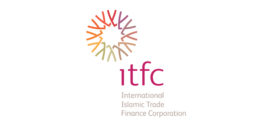 Based on a Detailed Analysis of the Conditions Underlying the Aluminum Industry’s Crisis, BCG Has Developed an Agenda for Aluminum Industry CEOs—A Comprehensive Starting Point for Setting Turnaround Priorities
Based on a Detailed Analysis of the Conditions Underlying the Aluminum Industry’s Crisis, BCG Has Developed an Agenda for Aluminum Industry CEOs—A Comprehensive Starting Point for Setting Turnaround Priorities
MANAMA, July 04, 2013— The aluminum industry has experienced an abundance of severe challenges in recent years, resulting in a sharp decline in company valuations and profits. To reignite the value creation engine and restore investor confidence, CEOs and their management teams can pursue aggressive action plans that will turn around the industry, according to The Aluminum Industry CEO Agenda, 2013–2015: Understanding the Challenges and Taking Action, a new report by The Boston Consulting Group (BCG).
The report examines the challenges and outlook for demand and supply of primary aluminum and for the value chain’s upstream and downstream segments. To help the overall industry and individual companies address the challenges, the report presents a comprehensive CEO agenda with ten actions items. This agenda provides a basis for setting the priorities of industry executives as well as government policymakers, whose national or regional economies are influenced by the industry’s performance.
Exploring the Roots of the Industry’s Crisis
“Our analyses show that the industry’s crisis can’t be traced back to an unexpected drop in demand caused by the global economic downturn or sudden changes in the value chain’s upstream or downstream segments,” said Thomas Bradtke, a BCG partner and coauthor of the report. “The crisis arose from the supply side, driven by China’s strategy to increase its capacity for producing primary aluminum. Producers in the rest of the world misinterpreted China’s moves and didn’t adjust their own strategies fast enough in response.”
“Global aluminum consumption has been driven almost entirely by China since 2000, and we expect this trend to continue,” added Kai Gruner, a BCG senior partner and coauthor of the report. “China’s capacity for producing primary aluminum has also grown dramatically, and its imports have declined significantly. Western aluminum companies weren’t expecting this, and they expanded their capacity in anticipation of increased Chinese imports. The resulting overcapacity and high inventory have caused the aluminum price to remain at low levels.”
The report also finds that developments in the value chain’s upstream and downstream segments are adding to Western companies’ challenges. China will likely have sufficient bauxite and alumina to meet its demand for feedstock. And Chinese manufacturers have become leading players in the global market for semifabricated and fabricated aluminum products.
Middle East Aluminum Industry
The Middle East’s aluminum industry is in an advantageous position, and can play a key role in industry consolidation and the development of new globally active players, shows a new report by The Boston Consulting Group (BCG). The Middle East’s strategic position is supported by the recent $15 billion merger of Dubai Aluminium (Dubal) and Emirates Aluminium (Emal) to create Emirates Global Aluminium, the world’s fifth-largest aluminum producer.
“The GCC aluminum market’s cost advantage is supported by its proximity to Europe, Asia and Africa and growing aluminum demand from the construction, packaging, transportation and industrial sectors,” said added Bradtke. “We are seeing local players make strategic movements both upstream and downstream as they build viable value chains and further aluminum-driven manufacturing.”
An Action Agenda at the Industry and Company Levels
“To become profitable and generate attractive returns for their shareholders in this environment, aluminum companies must adopt a more aggressive approach to confronting the industry’s challenges,” said Knut Olav Rød, a BCG partner and coauthor of the report. “We believe this more aggressive approach must be implemented on the industry level as well as the company level. The scale of the problem is too daunting to be resolved by individual companies acting independently.”
To address overcapacity outside China, the report proposes that key players work together to create an industry leader through M&A, establish a new company to acquire marginal assets, and obtain regulatory support for their concerted actions. To alleviate overcapacity within China, the report recommends that Western companies work with their Chinese counterparts to accelerate the removal of the country’s high-cost capacity while also encouraging Chinese companies to relocate their capacity to other countries.
The report advises individual companies to explore upstream opportunities in bauxite and alumina and focus on high-value or lowest-cost downstream businesses. It also recommends that companies substantially raise their game in three critical dimensions of business performance: operating and overhead costs, management of large-capex projects, and commercial activities.
Looking forward, BCG asserts that the Middle East’s aluminum industry will need to explore some key issues, including
- How much additional smelting capacity will be beneficial to the region and the global market
- The new developments on downstream and new products, as well as the saturation point levels
- The role GCC companies can play in mitigating Chinese supply effects
- GCC as destination for Chinese smelter investments
- How GCC aluminum companies can further improve cost position
- Whether a truly global aluminum company will be headquartered in the GCC
About The Boston Consulting Group
The Boston Consulting Group (BCG) is a global management consulting firm and the world’s leading advisor on business strategy. We partner with clients from the private, public, and not-for-profit sectors in all regions to identify their highest-value opportunities, address their most critical challenges, and transform their enterprises. Our customized approach combines deep insight into the dynamics of companies and markets with close collaboration at all levels of the client organization. This ensures that our clients achieve sustainable competitive advantage, build more capable organizations, and secure lasting results. Founded in 1963, BCG is a private company with 78 offices in 43 countries.
BCG serves the Middle East from Abu Dhabi and Dubai. Our offices there, in conjunction with the BCG office in Casablanca, play a key role in serving clients in the rapidly developing Gulf region as well as Middle East North Africa (MENA). To date BCG has successfully conducted assignments in the Middle East serving clients across a wide range of sectors, including government, financial services, energy, industrial goods, telecommunications, real estate, healthcare and private equity. For more information, please visit bcg.com.
For more information, please visit http://www.bcg.com.
About bcgperspectives.com
Bcgperspectives.com features the latest thinking from BCG experts as well as from CEOs, academics, and other leaders. It covers issues at the top of senior management’s agenda. It also provides unprecedented access to BCG’s extensive archive of thought leadership stretching back 50 years to the days of Bruce Henderson, the firm’s founder and one of the architects of modern management consulting. All of our content—including videos, podcasts, commentaries, and reports—can be accessed by PC, mobile, iPad, Facebook, Twitter, and LinkedIn.
 Cash And Trade Magazine For Cash and Trade professionals in the Middle East
Cash And Trade Magazine For Cash and Trade professionals in the Middle East





2 comments